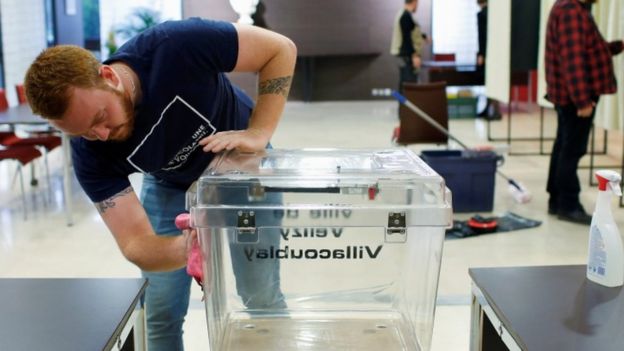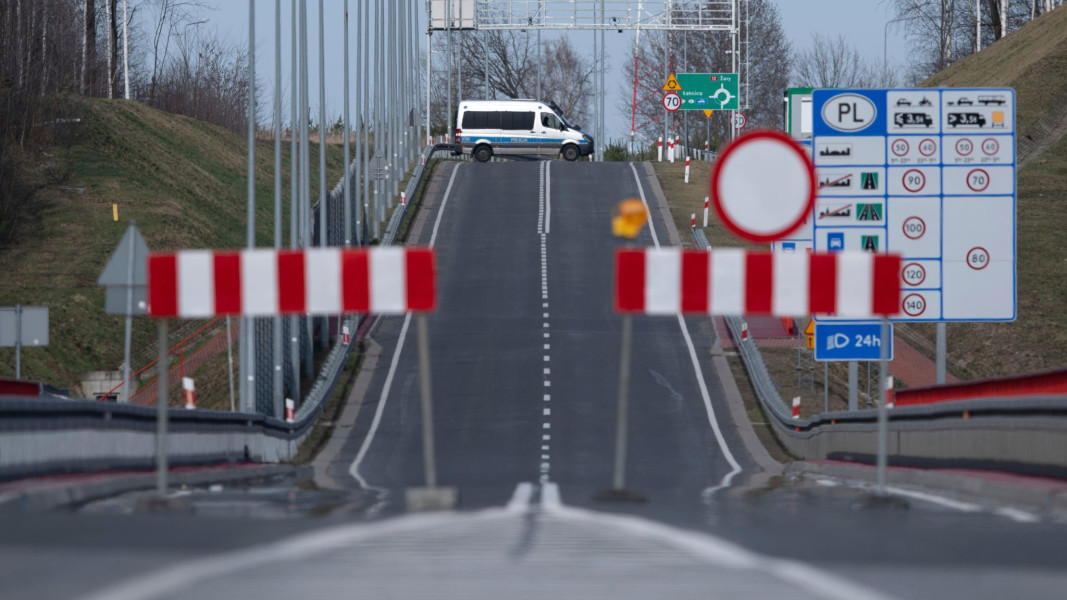Germany will “largely” shut its borders with France, Switzerland and Austria from Monday to stop coronavirus spreading, government sources say.
Other EU states are also taking radical action, with Austria banning gatherings of more than five people from Monday.
Romania is to declare a state of emergency. The Czech Republic, which has already closed its borders, could introduce a nationwide quarantine.
The moves follow strict measures taken by France and Spain on Saturday.
Spain recorded 97 more deaths and 2,000 new cases in the past 24 hours, bringing the country’s total death toll to 288 and overall number of cases to 7,753.
France, with 4,469 confirmed cases and 91 deaths, is holding local elections, despite the shutting of cafes, restaurants and most shops.

Italy, which has recorded 1,441 deaths and and 21,157 cases, began a nationwide lockdown on Monday.
The Czech Republic and Slovakia have already closed their borders.
The World Health Organization (WHO) said on Friday that Europe was now the “epicentre” of the pandemic.
WHO head Dr Tedros Adhanom Ghebreyesus has urged countries to use aggressive measures, community mobilisation and social distancing to save lives.
How will the German border shutdown work?
According to German media, the borders will close at 08:00 (07:00 GMT) on Monday.
However, goods will continue to flow between the countries and commuters may still cross the borders.
The aim is to contain coronavirus but also reportedly to curb panic-buying by foreigners which has led to some supply problems in the border regions.
Germany has seen at least nine deaths with coronavirus and 4,585 cases of infection.
What is happening in other EU states?
Austrian Chancellor Sebastian Kurz urged people to self-isolate and banned gatherings of more than five people as of Monday.
He added the UK, the Netherlands, Russia and Ukraine to a list of countries, entry to whose citizens is restricted.
Schools and most shops will be closed from Monday, following an earlier announcement.
Meanwhile, the prime minister of the neighbouring Czech Republic, Andrej Babis, said in a TV interview he would propose to government that the entire country should be put under quarantine.
He said the number of cases in the country had risen from 214 to 231, with no fatalities.
Romania, which has 123 cases, is set to declare a state of emergency on Monday.
On Saturday Spanish Prime Minister Pedro Sánchez said citizens should not leave home, except for buying essential supplies and medicines, or for work.
The state of emergency there will last for two weeks – more if deemed necessary and parliament approves.
In France the closure – which went into force at 23:00 GMT on Saturday – applies to restaurants, cafes, cinemas and nightclubs as well as non-essential businesses.
Prime Minister Édouard Philippe also asked people to reduce their travel, especially between towns, in the country of 63.5 million.
Source: BBC




















































